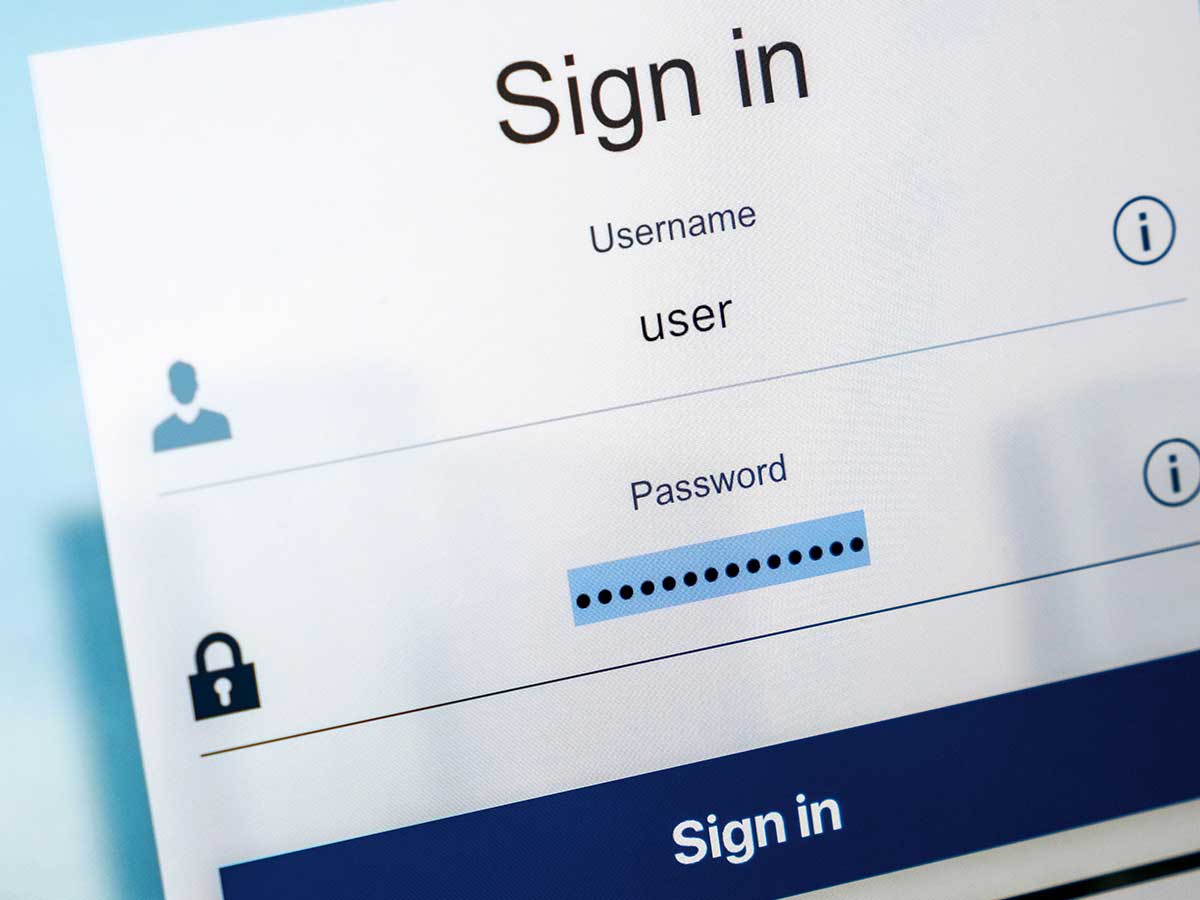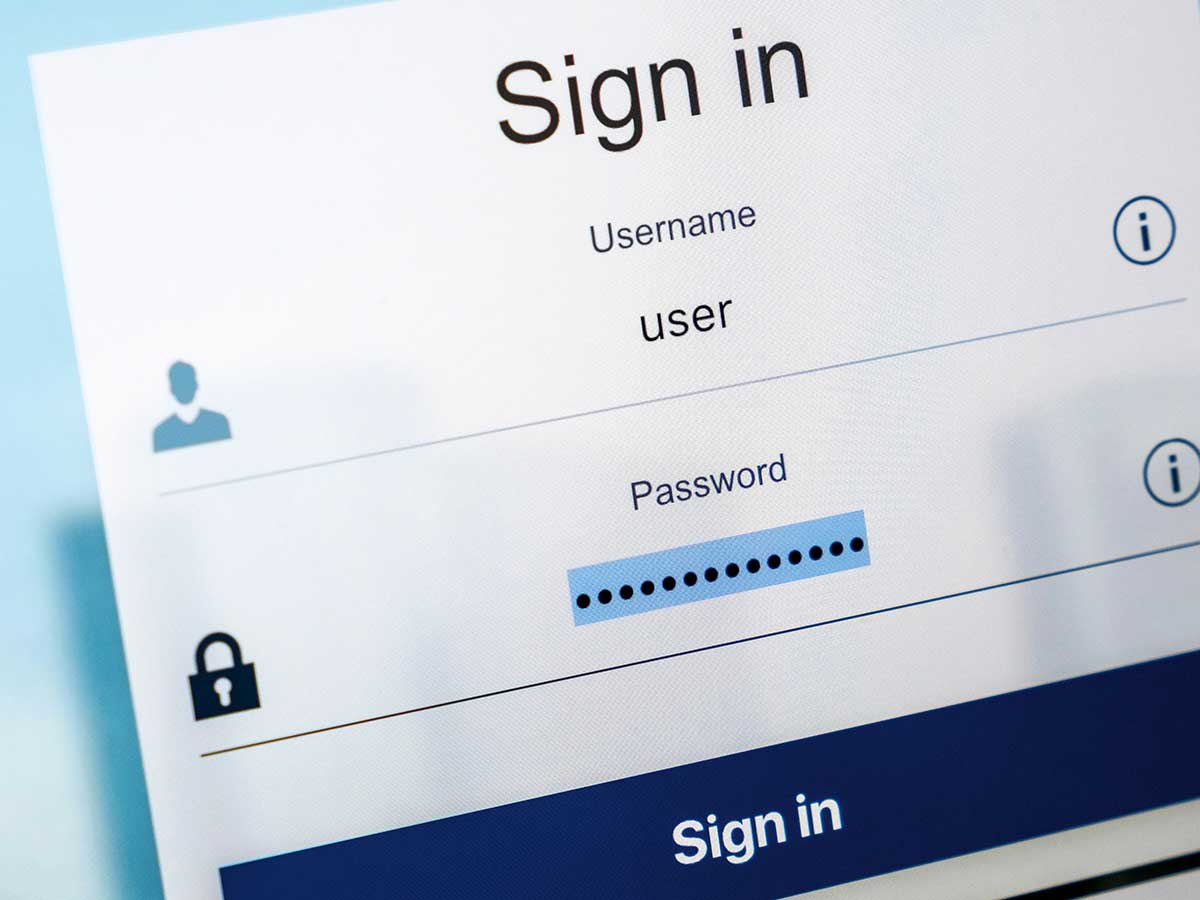
Do you know what the most commonly used password in 2018 was?
 Having an easy-to-guess password is just one of the many ways you can make yourself vulnerable to being a victim of identity theft (Shutterstock/Iurii Stepanov)
Having an easy-to-guess password is just one of the many ways you can make yourself vulnerable to being a victim of identity theft (Shutterstock/Iurii Stepanov)
Canadians are more concerned about fraud today than they were five years ago, according to the CPA Canada’s 2019 Annual Fraud Study. But how are we doing in terms of our knowledge so we can protect ourselves better?
Take this quiz and find out where you stand.
1. Most experts define fraud as...
A. Theft of identifying information, such as a SIN number or passport
B. Engaging in deception for financial or personal gain
C. Using online phishing scams to obtain information from a business or person
D. Physically stealing money from a business or individual
2. What’s the most common type of cyberattack?
A. Phishing
B. Ransomware
C. Stealing discarded devices
D. Password hack
3. What was the most commonly used password in 2018?
A. 111111
B. Password
C. 123456
D. Football
4. You receive an email from your bank that says your account has been compromised and that you should follow the link to reset your password. What should you do?
A. Click the link and enter your information where asked
B. Go online and see if any money has gone missing
C. Apply for a new debit card
D. Delete the email
5. What demographic group gets defrauded the most?
A. Millennials
B. Seniors
C. Boomers
D. Generation X
6. How much does fraud cost the Canadian economy every year?
A. $100 million
B. $900 million
C. $30 billion
D. $100 billion
7. What size of business gets hacked the most, according to Statistics Canada?
A. Small (between 10 and 49 employees)
B. Medium (between 50 and 249 employees)
C. Large (250 employees or more)
8. Businesses spent $14 billion on cybersecurity prevention in 2017. What was most of that money spent on?
A. Cybersecurity software
B. Training seminars for staff
C. “White hat” hackers to test a company’s vulnerabilities
D. Salaries for security-related employees, consultants and contractors
9. What’s the best way to prevent fraud from occurring?
A. Unfortunately, you can’t—hackers are getting too sophisticated
B. Turn off your computer after you’re done using it
C. Install anti-virus software and firewall protection
D. Regularly change your password and don’t click on any suspicious links
10. If fraud occurs, what should you do?
A. Call the police
B. Phone Canada’s credit bureaus and your credit card company
C. Throw away your device and buy a new one
D. Close your bank accounts
ANSWERS
Question 1: B
Many people think that fraud and identity theft are the same things, but they’re really two sides to the same coin. Hackers first steal one’s identity and then use that personal information to engage in fraud, which involves stealing money by posing as someone else.
Question 2: A
According to International Data Group’s 2018 U.S. State of Cybercrime, 53 per cent of executives surveyed said that phishing was the most common cyberattack, followed by malware and spyware.
Question 3: C
According to SplashData, 123456 was the most common password last year, followed by password and 123456789—football was the 16th most common password. If you want to protect yourself, use a more complicated string of numbers, letters and punctuation marks.
Question 4: D
Hackers can now send emails that look exactly like an email from a reputable source, such as a bank. However, your financial institution will never send an email saying your account has been compromised—they’d call you instead. Delete the email right away. If you’re still unsure, call the bank and confirm that nothing unusual has occurred.
Question 5: A
Most people think seniors get defrauded the most, but according to the Better Business Bureau’s 2017 Scam Tracker Annual Risk report, 43.7 per cent of people between 18 and 34 fell victim to online scams, compared to 27.6 per cent of the 55 plus cohort. However, seniors lost more money to scams than millennials.
Question 6: C
According to a Canadian Bankers Association report, fraud costs the Canadian economy between $15 billion and $30 billion every year.
Question 7: C
While companies of all sizes get hacked, 41 per cent of large companies surveyed by Statistics Canada were impacted by a cybersecurity incident in 2017. That compares to 28 per cent of medium-sized businesses and 19 per cent of small businesses.
Question 8: D
According to Statistics Canada, companies spent $8 billion on salaries for cybersecurity-related staff. Businesses spent $4 billion on software and hardware and $2 billion on prevention and recovery measures among other security-related things.
Question 9: D
While it’s true that hackers are getting more sophisticated and that anti-virus protection can help remove malware on a computer, the best way to prevent an attack is to avoid clicking on odd links and to continuously create hard-to-figure-out passwords.
Question 10: B
The first place to start is to call Canada’s two credit bureaus and get a fraud alert placed on your name. If someone tries to open a new account—whether a bank or credit card—the credit bureau will call to see if you’re the one opening it. Then call your credit card company to alert them to the fraud and to get any charges reversed.
Scoring |
|---|
You answered eight or more questions correctly: Congrats! You’re savvy with security and are probably taking measures to protect yourself from fraud. Still, with hackers becoming increasingly more sophisticated, all of us can do a better job. Change your passwords, don’t leave any personal information lying around, avoid clicking on any suspicious links and ignore any odd phone calls. You answered five to eight questions correctly: Not bad. You’re probably one of the 70 per cent of people who, according to CPA Canada’s 2019 Annual Fraud Study, are more concerned about fraud today than five years ago. Still, there is room for improvement. Read 4 things you need to know about identity theft right now to stay informed. You answered zero to five questions correctly: You’ll want to educate yourself about fraud as soon as you can. Fraud and identity theft are going concerns for Canadians of all stripes. Whether you’re young or old, a business owner or a company employee, you’ll want to find out how to protect yourself. You can also request CPA Canada’s fraud financial literacy session for your community to learn more about the topic and how you can avoid becoming a victim. |